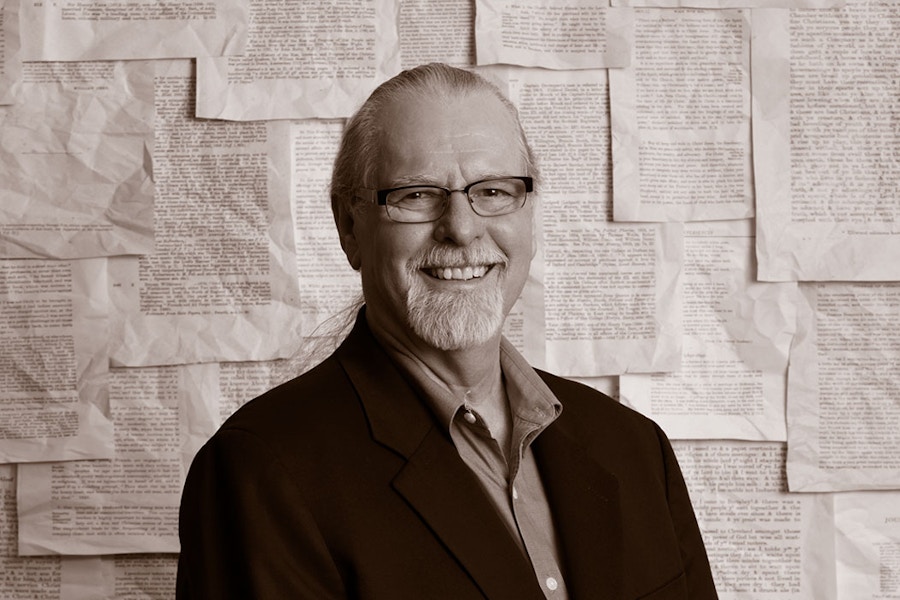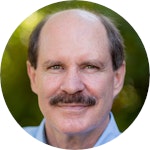Paul Anderson: Wow, Richard, it’s been 40 years since your first book, Celebration of Discipline, was published, and it’s still a best seller (selling over 2 million copies), having been translated into 25 languages! Reflecting on that now, could you say something about your original vision for the book, and how God has blessed its impact over the years?
Richard J. Foster: I have never shared this detail publicly before. In the very beginning I felt I was given a glimpse (dare I say by God) into the future for Celebration. Of course, one does not speak of such things. So I remained quiet and watched to see how the future would unfold.
And, of course, from a human perspective, no one could have imagined what did unfold. The good folk at Harper Publishing said, “Richard, the house of Harper publishes many books and we can’t advertise them all. But we do believe Celebration will have a long and steady life, however modest the sales.” And then, mostly by word of mouth, Celebration began to find its way into virtually every denominational context imaginable and into a host of countries worldwide. Everyone was astonished that a serious book about the spiritual disciplines would have such a broad and enthusiastic appeal. I only smile and thank God.
PA Right; Celebration has certainly commanded a broad ecumenical and international reach; any idea why? When it first came out, I saw it featured for sale at the evangelical Berean Bookstore in Canton, Ohio and also at the Harvard Coop bookstore when I visited a friend there; an amazing spectrum of interest!
RJF Yes, isn’t it astonishing! Protestant and Catholic, high church and low church, well-established believers and seeker groups — a wonderful array of people. You ask me why? Well, one reason might be that when I was writing about the central Quaker insights I purposely sought to do so in a language that could be received across the denominational spectrum. And this was also true of the great insights I had received from the devotional classics all through Christian history. You see, the great spiritual treasures are almost always loanable, if we share them in a broad and non-sectarian way.
PA Say a bit more, Richard, about how Celebration led into some of your next book-length projects. How did you discern what to write on next, and how has God also used some of those writings?
RJF The next book was Freedom of Simplicity. It needed to come next because there was the danger that people would think of the Spiritual Disciplines only as pious exercises for the devout and miss the rigorous social dimensions to this life with God. Other books followed. Perhaps the most important are Prayer: Finding the Heart’s True Home and Streams of Living Water.
PA In addition to your calling to write, tell us about Renovaré as an organization and a movement. What was the impetus for founding that organization, and how has it furthered the renewal of Christ-centered spirituality worldwide?
RJF Well, after watching people working with the ideas from Celebration for a decade or so I noticed three critical problems:
- People were trying rather than training,
- People were scattered rather than gathered, and
- People had a myopic vision rather than a synoptic vision.
So, Renovaré came into being to provide help in grappling with those issues.
The heart of Renovaré is our Ministry Team, a group of twenty-five leaders from all around the country. Our key task is the forming of a community life among ourselves and out of that community life we work in teams holding conferences, retreats, an ongoing two-year intensive Institute in Spiritual Formation and more. Obviously we are a widely dispersed community so once a year we gather together in retreat for our own spiritual growth and to strengthen our community life. We have been doing this for thirty years now.
PA Growing up as an evangelical Friend, how has your experience as a Quaker helped or hindered your interdenominational outreach?
RJF Oh, it has been a genuine asset. Quakers may not always deserve it, but they have a wonderful reputation in the broader culture for loving and caring ministry that is free from any need to proselytize. Also, they are known for valuing each human being as precious in the sight of God. This opens many doors.
PA As you reflect upon the power of the written word to transcend the bounds of time and space, what counsel might you offer to others who feel a calling to be “publishers of truth,” and how can those who feel such a calling inspire one another in its pursuit?
RJF I am always amazed how God can take scribbles on a piece of paper to bring Jesus’ life into people. But God does. So, we encourage each other whenever we can in this ministry of writing. Writing is hard, lonely work. If we truly want to help people, we will learn to write in blood. So, in this work, we give encouragement as often as possible.
PA Now, in this final year of your public ministry, Richard, can you share a bit more about what you and Nathan and others have planned regarding conferences and special sessions? How can people be sure to hear you if they’d like to?
RJF We thought it would be good to leverage this 40th anniversary occasion to urge people to think more deeply about Spiritual Formation. In our day, we really do need to flesh out a clear understanding of how the human personality can be increasingly formed from the inside out by love and joy and peace and patience and kindness and goodness and faithfulness and gentleness and self-control (Gal. 5:22 – 23).
We will have ten events in ten different states around the country. Also, we’ll do two conferences at two different colleges; one an academic conference at Westmont College in Santa Barbara, CA, and the other with you at George Fox University in Newberg, OR, which will focus on pastoral and church leadership.
All of the information is on our web site at www.renovare.org. We would love it if readers could join us for one or more of these celebrative events. And as you mentioned, this will bring my public ministry to a close … ; it is time for younger voices to step in and take leadership.
PA As a final question, as we celebrate 40 years of Celebration of Discipline, how might these events, and especially the conference we’re hosting at George Fox University (June 10 – 13), empower spiritual transformation in the local church?
RJF Good question. Today we desperately need a clear theology of spiritual growth. We need a sturdy vision of a with-God life in the Kingdom of God. Then, we need the clear intention to pursue such a vision. And third, we need a full understanding of the means to fulfill such a vision. These are the issues we hope to work on together at these events, and most especially at the Pastoral Conference at George Fox University.
Originally published in Quaker Life. Used by permission.



